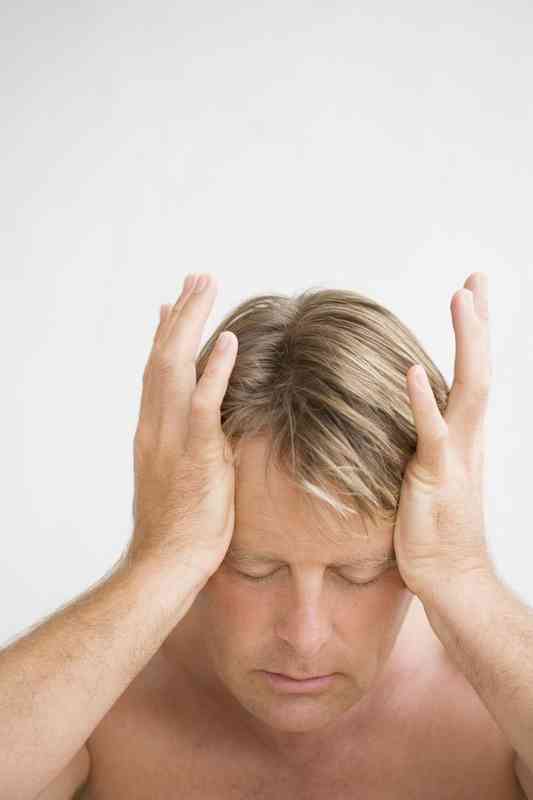Headache & Temporal Tenderness

Many things can cause a headache, including stress, hormones, weather, medications and sinus pressure. Temporal arteritis causes the temple region to feel tender and occurs when the arteries are inflamed. One major symptom of temporal arteritis is a headache. See your doctor if you are experiencing intense sharp pain in the temple region and think you may have temporal arteritis.

Symptoms
Temporal arteritis causes many intense and unpleasant symptoms. The temporal artery runs alongside the temple region and around the eyes. This artery affects the neck, head, upper body and arms. Headaches are usually experienced on one side and localized. Pain in the jaw, fatigue, appetite loss, sweats and vision loss are some of the symptoms that can occur. According to the Lahey Clinic, white females who are 50 years or older and smoke are more at risk for temporal arteritis.
Diagnosis
If you experience any of the symptoms discussed, see your physician so she can conduct tests. If you are 50 years or older, are tender around the temples and are experiencing localized headaches, you may have temporal arteritis. An ultrasound of the temporal artery, along with a retinal exam and blood test, will most likely be performed to see if you are suffering from this condition.
Types
Headaches fall into two categories. Primary or benign headaches include tension-type, migraine and cluster headaches. Tension-type headaches are caused by stress, cluster headaches come in groups without warning, and migraines usually begin as a dull ache that develops into a constant throbbing with a lot of pain. All other headaches are considered secondary, which are organically caused. Headaches fall into these two categories depending on their causes and symptoms.
Treatments
Several treatments are available for those who suffer from headaches. Corticosteroid therapy might be implemented to decrease inflammation. This type of therapy can have several side effects, including weakening of the bone. Calcium, vitamin D and bisphosphonate supplements may help balance out the side effects. Your doctor may also prescribe low-dose aspirin. In addition to prescription or over-the-counter painkillers, relaxation techniques are often suggested to treat headaches. Yoga, deep breathing and acupuncture are alternative therapies that may help reduce nervous system tension. Every headache can require a unique treatment based on the symptoms experienced, so seek medical advice if you suffer from headaches.




